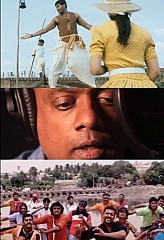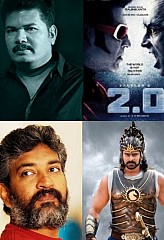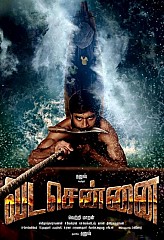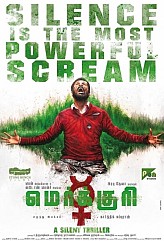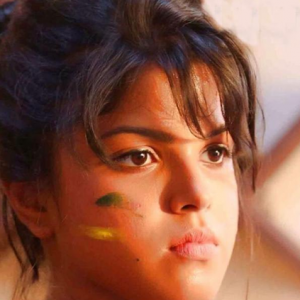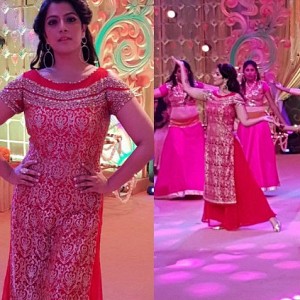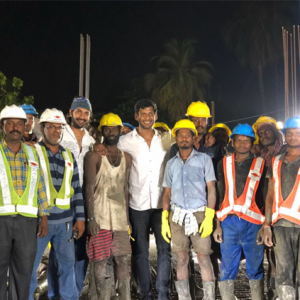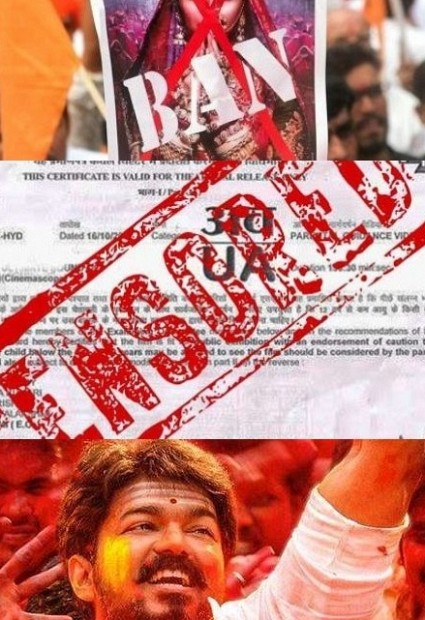
The 1988 Italian movie Cinema Paradiso tells the story of the world-famous filmmaker Salvatore DI Vita, who comes back to his native place, a small Sicilian town, after a gap of 30 years. He visits the Cinema Paradiso theatre in the town square and is given a gift - a box of film reels - by the Late projectionist’s widow. Once back in Rome, he decides to watch the reel. What follows is one of the most emotionally touching sequences in world cinema.
The reel is a long montage of amorous screen kisses censored out of numerous films by the village priest at a time when Salvatore Di Vita was a kid and introduced to the magic of cinema by the projectionist Alfredo. No other movie has ever portrayed the issue of cutting away undesirable scenes and shots from the body of a movie as beautiful and haunting as Cinema Paradiso.
2017 was more of a year of stolen kisses and mutilated cinema bodies for Indian cinema too. With controversies regarding content, dialogues and titles of the movies making it to the headlines, heated confrontations in and out of social media platforms and theatres grew out into blatant violence against filmmakers and their crews. A study conducted by Freemuse, an independent international organisation for free artistic expression, places India at the top spot in a list of 78 countries that censored the most number of films in 2017.
According to the study, titled the State of Artistic Freedom, 20% of all the film censorship cases in the world is contributed by India. It is interesting to note that Turkey and Pakistan, along with Lebanon, France and China caught the next slots in the list, with Pakistan accounting for 9% of the censorship cases, while China contributed 6%.
Director Ram’s Taramani was at loggerheads with the Censors for its scenes in which the protagonist drinks alcohol, smokes and uses the profane words. Ram responded with a teaser in which “the dialogues allowed by censors were muted and muted dialogues were allowed.” The Malayalam movie S Durga directed by Sanal Kumar Sasidharan, which won the prestigious Hivos Tiger Award at the International Film Festival Rotterdam in 2017, was in trouble for its title and dialogues.The movie was also dropped from the IFFI's Indian Panorama section at the last moment.
Mersal, Vijay’s blockbuster of 2017, too, met with another form of vigilante censorship for its dialogues regarding GST. Sanjay Leela Bhansali’s Padmavat suffered a series of vigilante attacks before its release and the makers were forced to change the title. Earlier, Lipstick Under My Burkha was also halted for its femininity oriented content.
In almost all the cases, two reasons were floated by the authorities for curbing the creative freedom and freedom of expression of the filmmakers: “the law and order and the religious sentiments.” These two arguments raise some crucial concerns about the relevance of a Censor Board as a supreme authority in gauging the freedom of expression and tolerance in a democratic country and the increasing trend of vigilante censorship all across the nation in the name of various outfits.
At the core, censorship is a rating system to classify movies according to the appropriateness for audiences in terms of sex, violence, substance abuse, profanity, impudence, or any other types of obscene content. While in authoritarian and theocratic regimes, the censorship laws are rigid, democracies like America follow a self-censorship system called the Motion Picture Association of America (MPAA). The MPAA rating system is a voluntary scheme that is not enforced by the rule of law.
The MPAA model proves that self-censorship is the best available option for a diverse democratic country like India instead of attacking filmmakers, threatening actors and vandalizing film sets and theatres. On the other hand, establishing a self-censorship system by abolishing conventional bureaucratic censorship by the ruling machine rests enormous responsibility on the filmmakers and artists. Like democracy, it’s a priceless virtue to safeguard from abuse.
Unless and until our filmmakers speak out for a rating system based on self-censorship, Sanskari bosses of the ruling machine or violent vigilantes who take it into their own hands will dictate filmmakers to take down hugs, kisses, lovemaking, homosexuality, nudity, bra straps, breasts, thighs, cuss words, titles, sarcastic comments, jokes, and so on which will inevitably mutilate the movie. And beware, all the “undesirable” things cut by the Censors are kept alive by someone, somewhere, and they will resurface one day as in the movie Cinema Paradiso.
Behindwoods is not responsible for the views of columnists.
FACEBOOK COMMENTS
OTHER LATEST BEHINDWOODS COLUMNS
RAGESH DIPU'S OTHER COLUMNS
- An Ode to Cooum; GVM speaks out, and you?
- Shankar, Rajamouli and the age of filmmakers bigger than their movies
- Why the long wait for Vada Chennai is worth every moment
- The Mercurial Karthik Subbaraj and Our Reasons to Watch Mercury
- The bold and beautiful women of Andrea Jeremiah
- Theni Fire Accident; the Fact and Fiction of Wanderlust
- Stalkers in and out of cinema; what’s the reality?
- Arya's Enga Veetu Mapillai: A reality check on the reality shows
- The Politics of Open Breastfeeding
- The Blackness of Kaala and Portrait of the Superstar as an Actor
- Sridevi, the first heroine to crack the male supremacy in Indian Cinema
- Chekka Chivantha Vaanam - Why we yearn for a Mani Ratnam film
- Why Naachiyar is not a Typical Bala Film, but More
- From Kolaveri to Priya Prakash Varrier, And How #hashtags Grow Bigger Than the Movies!
- From Mahesh to the Fakir: The Extraordinary Journey of Dhanush
- The attacks and assaults on actresses, or should we say, women
- A question at the time of the theatre shutdown: Why are we going to the movies?
- From Anbe Sivam to Velaikkaran - How Tamil Cinema dealt with consumerism
- How Malayalam and Tamil cinemas exchanged actors
- The Many Lives of Fahadh Faasil
- The Suriya body shaming incident - Are you sure you have not done it too?
- Aruvi: A genre-bender, a trailblazer and the making of a cult
RELATED LINKS
- Vijay - Photos
- Vijay- Photos
- Vijay
- Vijay | Most Viewed Tamil Movie Teasers - Slideshow
- Vijay | Top Tamil Cinema Celebrities Wedding photos - Slideshow
- Vijay | Autographs of Top Tamil film stars - Slideshow
- Vijay | Top Actors' Films in Other Languages! - Slideshow
- Vijay | Kollywood stars' version of Vada Chennai First look - Slideshow
- Vijay | If Suriya's NGK featured Rajini, Vijay and Ajith - Check posters now - Slideshow
- Vijay | Number of times Sridevi acted with top Superstars - Slideshow
- Vijay | All these actors have releases in 2018! - Slideshow
- Vijay | Top heroes real life gymming photos - Slideshow
- Vijay | Priya Prakash Varrier's cute expressions - What if top heroes reacted to them? - Slideshow
- Vijay | Actors and their wax statues - Slideshow
- Vijay | Kollywood stars who missed CSK in action? - Slideshow
- Vijay | BEST SPECTACLES-LOOK OF KOLLYWOOD HEROES - Slideshow
- Vijay | STARS WHO CAN MATCH PRABHU DEVA'S STYLE! - Slideshow
- Vijay | The Class and Mass looks of Kollywood Heroes - Slideshow
- Vijay | The Murukku Messai Swag of Indian celebrities - Slideshow
- Vijay | Exclusive: Find your Favourite Stars Personal Caller tune - Slideshow
- Vijay | Here’s how the 1st year - final year pics of stars would’ve been - Slideshow
- Vijay | TOP 10 PHOTOS OF THE WEEK (AUG 15 - AUG 21) - Slideshow
- Vijay | Top 10 photos of the week (July 3 - July 9) - Slideshow

